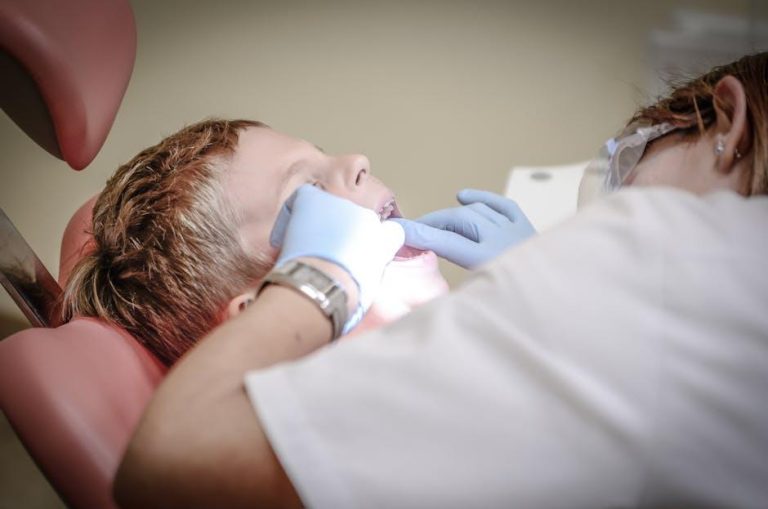
Dentists Warn of Taking Fluoride Out of NY Water — Many Counties Already Don’t Have It
Fluoride in public water systems has long been a staple of dental health efforts across the United States. However, recent debates have surged in New York regarding the removal of fluoride from the state’s water supply. Dentists and public health experts strongly caution against removing fluoride, citing its proven benefits in preventing cavities and maintaining oral health. Surprisingly, many New York counties already lack fluoride in their water, raising questions about public awareness and access to beneficial dental care.
Understanding Water Fluoridation and Its Importance
Water fluoridation is the controlled addition of fluoride to municipal water supplies to reduce tooth decay. The Centers for Disease Control and Prevention (CDC) recognizes water fluoridation as one of the 10 greatest public health achievements of the 20th century.
Why Is Fluoride Important?
- Prevents tooth decay: Fluoride strengthens tooth enamel, making it more resistant to acid attacks from plaque bacteria and sugars.
- Cost-effective public health measure: Communities with fluoridated water see a significant reduction in cavities, reducing dental treatment costs.
- Protects all age groups: From young children to seniors, fluoride helps maintain oral health regardless of individual dental care habits.
Dentists’ Concerns About Removing Fluoride From New York’s Water
Dental professionals are raising red flags over initiatives and discussions about discontinuing water fluoridation in New York. Their concerns focus on the negative dental health consequences such a move could trigger, including:
- Increased cavities in children and adults: Without fluoride, teeth become more susceptible to decay.
- Widening dental health disparities: Fluoride benefits lower-income communities who may lack access to dental care.
- Greater dental treatment costs: Increased cavities may lead to higher expenses for restorative dental care.
“Removing fluoride from water is a step backward in public health,” says Dr. Linda Torres, a pediatric dentist practicing in upstate New York. “We have decades of research demonstrating fluoride’s safety and effectiveness in reducing tooth decay.”
Counties in New York Without Fluoridated Water
While many cities like New York City and Albany have fluoridated water, numerous counties across New York state do not. Factors such as local regulations, public opinion, and resource limitations contribute to this disparity.
| County | Fluoridation Status | Population (Approx.) | Notes |
|---|---|---|---|
| Schoharie | No Fluoride | 30,000 | Rural area, limited water system |
| Hamilton | No Fluoride | 5,000 | Small population, private wells common |
| Lewis | No Fluoride | 26,000 | Mostly rural, no community fluoridation |
| Westchester | Partial Fluoride | 980,000 | Some municipalities fluoridated, others not |
| New York City | Fluoridated | 8.6 million | Fully fluoridated since 1965 |
This table illustrates the patchwork nature of water fluoridation in New York, where some counties and municipalities have no fluoride added at all.
Benefits of Fluoride in Drinking Water
According to the American Dental Association (ADA), water fluoridation provides:
- Up to a 25% reduction in dental decay among children and adults.
- Equitable dental health benefits regardless of socioeconomic status.
- Safe levels when regulated properly with minimal risk of dental fluorosis.
Scientific Backing and Global Perspectives
Fluoride’s dental health benefits have been documented worldwide in countries including Australia, Canada, and the United Kingdom. It remains one of the simplest, safest, and most affordable methods for cavity prevention endorsed by the CDC and the World Health Organization (WHO).
What Happens if Fluoride Is Removed?
If New York water systems eliminate fluoride, dental health experts predict the following outcomes:
- Rise in tooth decay and cavities: Children, seniors, and vulnerable populations will be at greater risk.
- Increased dental care costs: More restorative treatments like fillings, crowns, and extractions will be needed.
- Negative impact on public health: Oral health is a critical component of overall health.
Public Opinion and Misinformation
Some opposition to water fluoridation stems from concerns about safety and individual choice. However, numerous scientific reviews confirm fluoride’s safety at recommended levels. Educating communities on the evidence-based benefits is essential to combating misinformation.
Practical Tips for Maintaining Dental Health Without Fluoride in Water
For residents in counties without fluoridated water, or if fluoridation stops, consider these steps:
- Use fluoride toothpaste and mouth rinses: These products still deliver fluoride directly to teeth.
- Consult your dentist regularly: Professional cleanings and check-ups help prevent decay.
- Maintain a low-sugar diet: Reducing sugar intake limits acid attacks on enamel.
- Stay hydrated: Drinking plenty of water helps wash away food particles and bacteria.
- Consider fluoride supplements: Ask your dentist about prescribed fluoride tablets or drops.
Case Study: Newburgh’s Fluoridation Success Story
Newburgh, NY, once faced high rates of childhood cavities. By initiating a water fluoridation program, dental health drastically improved:
- 37% reduction in child cavity rates in five years.
- Lower treatment costs for families and the city.
- Enhanced awareness of preventive dental care.
This case exemplifies the tangible benefits fluoridation brings to communities.
Conclusion: The Critical Role of Fluoride in New York’s Dental Health
The debate over fluoride in New York water highlights the balance between public health and community preferences. Dentists and health experts overwhelmingly agree that fluoride is a safe, effective, and essential element in reducing tooth decay across all populations.
While many counties already lack fluoridated water, removing it from the larger state water systems could exacerbate dental health disparities and increase health care costs. It is vital that policymakers consider the proven benefits and listen to scientific guidance before making decisions that impact the well-being of millions.
If you live in a non-fluoridated area or are concerned about fluoride access, speak to your dentist about protective measures and how to maintain optimal oral health.


